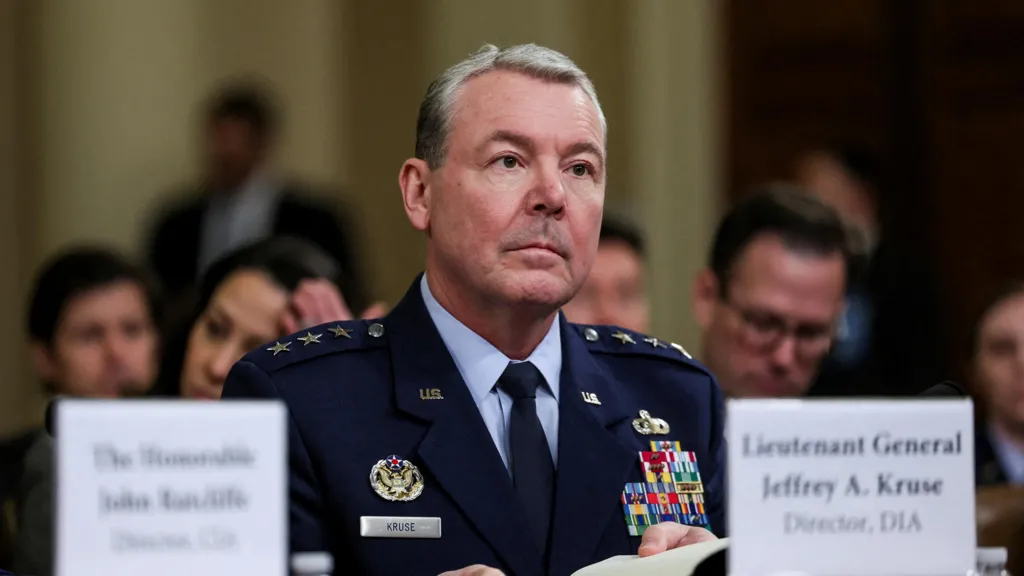The Pentagon has dismissed Lt. Gen. Jeffery Kruse, head of the U.S. Defense Intelligence Agency (DIA), in a sweeping shake-up that follows weeks of tension between the White House and military intelligence officials over the impact of American strikes on Iran.
The move, announced Friday by Defense Secretary Pete Hegseth, also included the ousting of two other senior commanders the chief of U.S. Naval Reserves and the head of Naval Special Warfare Command. The Pentagon did not immediately provide an explanation for the dismissals.
Kruse’s removal comes just weeks after the White House strongly rejected a leaked DIA report assessing that U.S. attacks on Iranian nuclear facilities had only set back Tehran’s program by a matter of months. President Donald Trump called the analysis “flat out wrong,” insisting that the strikes had “completely destroyed” the sites.
“The report was based on low intelligence,” Hegseth said in June, while confirming that the FBI was investigating the source of the leak.
The Washington Post was first to report Kruse’s exit, which marks another flashpoint in the administration’s turbulent relationship with intelligence agencies. Trump has frequently dismissed officials whose assessments contradict his public claims, fueling concerns among lawmakers about the politicization of intelligence.
Senator Mark Warner, chair of the Senate Intelligence Committee, warned that the firing was part of a troubling pattern. “The president has a dangerous habit of treating intelligence as a loyalty test rather than a safeguard for our country,” Warner said.
Kruse’s departure follows a string of high-profile dismissals across the national security establishment. In April, Trump removed General Timothy Haugh as director of the National Security Agency, along with more than a dozen staff members from the National Security Council. In July, he ordered the firing of Commissioner of Labor Statistics Erika McEntarfer after a report showed slowing job growth.
Hegseth himself has overseen a broad reshuffling at the Pentagon. In February, he dismissed Air Force General C.Q. Brown and five other senior officers.
The DIA, part of the Department of Defense, specializes in military intelligence collection and analysis. While it operates separately from civilian agencies like the CIA, its assessments often play a critical role in shaping U.S. defense strategy — a role now under intense political scrutiny.

